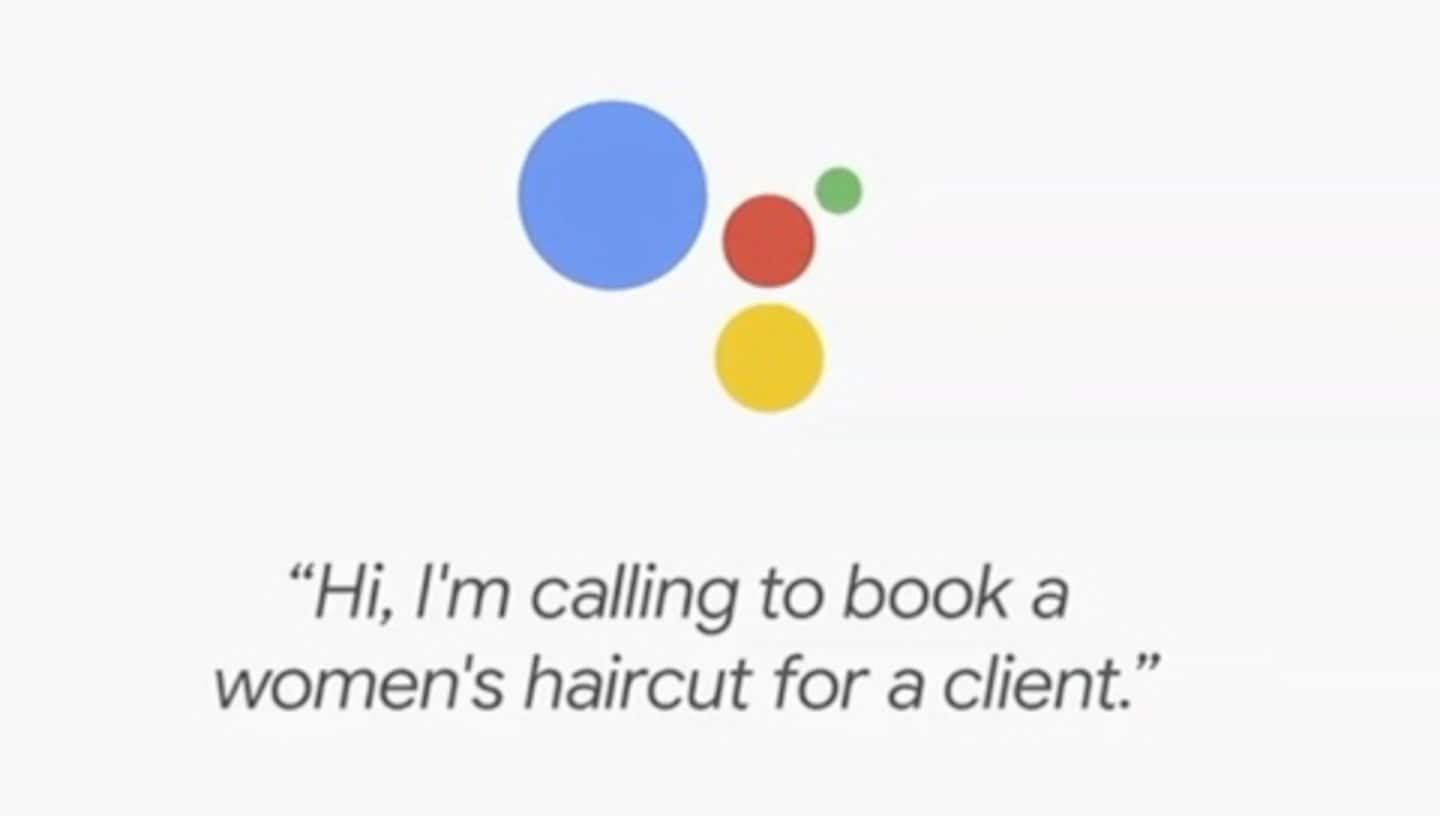
Google confirms its human-sounding AI won't take away call-center jobs
What's the story
Ever since Google CEO Sundar Pichai unveiled its human-sounding Duplex AI at the I/O developers conference earlier this year, there had been growing apprehension that Duplex might replace human labor in call centers. However, it seems that those fears were unfounded, as Google has now announced that it does not plan on letting call centers use Duplex. At least, for now. Here's more.
Details
Google seems to have cleared the air about call centers
Earlier this week, a report claimed that the Duplex AI might enter call centers - a move which would have cost people millions of jobs. Understandably, there was a lot of apprehension. However, Google, in a statement to CNET, has confirmed that Duplex will be used to "help people get things done, rather than applying it to potential enterprise use cases".
Quote
An excerpt from Google's statement to CNET
"We aren't testing Duplex with any enterprise clients. Duplex is designed to operate in very specific use cases, and currently we're focused on testing with restaurant reservations, hair salon booking, and holiday hours with a limited set of trusted testers," added Google.
Duplex AI
A bit about Google's Duplex AI
Google's Duplex AI is part of its DeepMind project. The controversial human-sounding AI uses DeepMind's new, highly advanced, "WaveNet" audio-generation technique and other technologies in Natural Language Processing (NLP) to replicate human speech patterns. Duplex even factors in human "speech disfluencies" such as "ums" and "uhs" which people say while gathering their thoughts. However, Google has come under fire over Duplex's ethical implications.
Ethical issues
The ethical debate lies around the governance of such tech
Tech critics have raised questions about the morality of the technology, saying that it was developed without proper regulation. The ethical debate around the technology involves the governance of machines that can fool people into thinking they're human. Why? Because such technology has massive potential for misuse. For instance, political parties could deploy such technology to convince voters via automated AI-based, human-sounding phone calls.